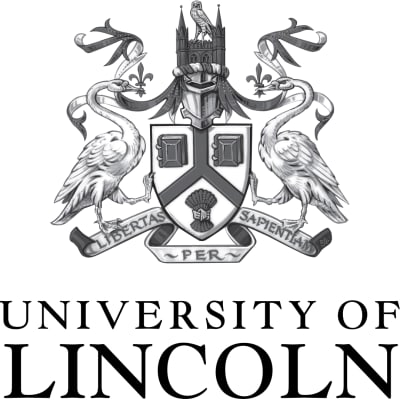
BSc (Hons) Education and Digital Learning
University of Lincoln

Key Information
Campus location
Lincoln, United Kingdom
Languages
English
Study format
On-Campus
Duration
3 years
Pace
Full time
Tuition fees
Request Info
Application deadline
Request Info
Earliest start date
Request Info
Discover Lincoln Wherever You Are in the World
Our webinars, subject masterclasses, question and answer sessions, and student panel talks are a great way to discover what it is like to live and study at the University of Lincoln.
Introduction
This degree has been designed to help prepare students to develop as digitally-trained educational professionals who are able to innovate, solve problems, and adapt to the changing demands of education.
Students can gain practical experience that can be applied in the real world. They will have the chance to undertake work experience in every year of study where they will be able to work closely with peers and academic staff during personal tutorial sessions, as well as undertaking put-it-into-practice (PiiP) weeks. We encourage students to challenge themselves through problem-based throughout their studies.
The course aims to provide an innovative environment and students will be able to explore new approaches to digital education and digital learning tools. Subject to annual approval, students will be given their own electronic device to use alongside School equipment including VR headsets, digital tablets, and content-recording tools (e.g. green screens and cameras) to ensure they are equipped for a variety of both digital and workplace contexts.
Students will have the opportunity to learn about a wide range of topics, structured by the four pillars of education: history, sociology, psychology, and philosophy. They can select modules tailored to their interests, including special educational needs and disability (SEND) or studies of childhood, for example. As well as this grounding in education, they will receive dedicated core modules focused on digital learning and surrounding issues such as globalisation, social justice in education, and ethical practice.
"This information was correct at the time of publishing (July 2023)"
Gallery
Admissions
Scholarships and Funding
Going to university is a life-changing step and it's important to understand the costs involved and the funding options available before you start. For eligible undergraduate students going to university for the first time, scholarships and bursaries are available to help cover costs. The University of Lincoln offers a variety of merit-based and subject-specific bursaries and scholarships.
Several scholarship options are available. Please check the university website for more information.
Curriculum
How You Study
Teaching will take place in the form of lectures, seminars, workshops, and small groups. An online virtual learning environment is also used to support and enhance face-to-face teaching.
The first year of study will focus on introductory core modules to explore fundamental theories of learning, digital learning, research skills and digital curriculum design and delivery. Students will discover how learning takes place and how we can deliver effective content to a range of students, both digitally and using more traditional methods.
A tutorial system operates throughout the three-year course. The first year provides opportunities for students to develop their own personal and academic skills and can provide a sound basis for the transition to the second year. The course also includes a series of scheduled meetings with a personal tutor.
In the second and third years of study, teaching will focus on special educational needs and diversity, research methods in education, and advancing knowledge of digital teaching and learning methods and wider issues associated with these. Students are able to choose an optional module to support their own specific interests and work more closely with peers from other courses in the School.
The final year of study involves the completion of an extended research-based project. This, along with further elective modules, and an advanced digital learning module, aims to provide opportunities for students to build on their own interests which may be determined by their career aspirations.
First Year
- Digital learning work experience study one (Core)
- Digital learning: Curriculum design and delivery (Core)
- Digital Learning: Introduction (Core)
- Introduction to Educational Research (Core)
- Introduction to Learning (Core)
Second Year
- Digital learning work experience study two (Core)
- Diversity, Inclusion and Alternative Education (Core)
- Research Methods in Education (Core)
- Curriculum: Principles and purposes (Option)†
- Intermediate Education (Option)†
- Psychology of Education (Option)†
- Studies of Childhood (Option)†
Third Year
- Digital learning work experience study three (Core)
- Digital Learning: Advanced (Core)
- Dissertation (Core)
- Advanced Psychology of Education (Option)†
- Advanced SEND (Option)†
- History of Education (Option)†
- Learning Through Reflection (Option)†
- Philosophy of Education (Option)†
- Sociology of Education (Option)†
† Some courses may offer optional modules. The availability of optional modules may vary from year to year and will be subject to minimum student numbers being achieved. This means that the availability of specific optional modules cannot be guaranteed. Optional module selection may also be affected by staff availability.
How You Are Assessed
The nature of the assessment varies across the three levels of the course. Assessments at levels one and two focus on the acquisition and understanding of knowledge and skills. In contrast, the level three assessments place far greater emphasis on the ability to apply, analyse, and evaluate knowledge.
Students' assessment methods may include written essays, posters, discussion groups, poster presentations, case studies, and multimedia portfolios. We aim to assess students using a diverse range of methods as part of our School's commitment to equality, diversity and inclusion.
Program Outcome
How You Study
Teaching will take place in the form of lectures, seminars, workshops, and small groups. An online virtual learning environment is also used to support and enhance face-to-face teaching.
The first year of study will focus on introductory core modules to explore fundamental theories of learning, digital learning, research skills and digital curriculum design and delivery. Students will discover how learning takes place and how we can deliver effective content to a range of students, both digitally and using more traditional methods.
A tutorial system operates throughout the three-year course. The first year provides opportunities for students to develop their own personal and academic skills and can provide a sound basis for transition to the second year. The course also includes a series of scheduled meetings with a personal tutor.
In the second and third years of study, teaching will focus on special educational needs and diversity, research methods in education, and advancing knowledge of digital teaching and learning methods and wider issues associated with these. Students are able to choose an optional module to support their own specific interests and work more closely with peers from other courses in the School.
The final year of study involves the completion of an extended research-based project. This, along with further elective modules, and an advanced digital learning module, aims to provide opportunities for students to build on their own interests and may be determined by their career aspirations.
Program Tuition Fee
Career Opportunities
Graduates would be well-placed to pursue careers in education including roles in schools, colleges, and universities, as well as roles such as digital learning consultants, project officers, and digital learning co-ordinators and specialists. They may consider working in digital content design roles, or for private educational institutions, libraries or museums.
Graduates may also wish to move to further study in the form of a PGCE primary teacher training course.